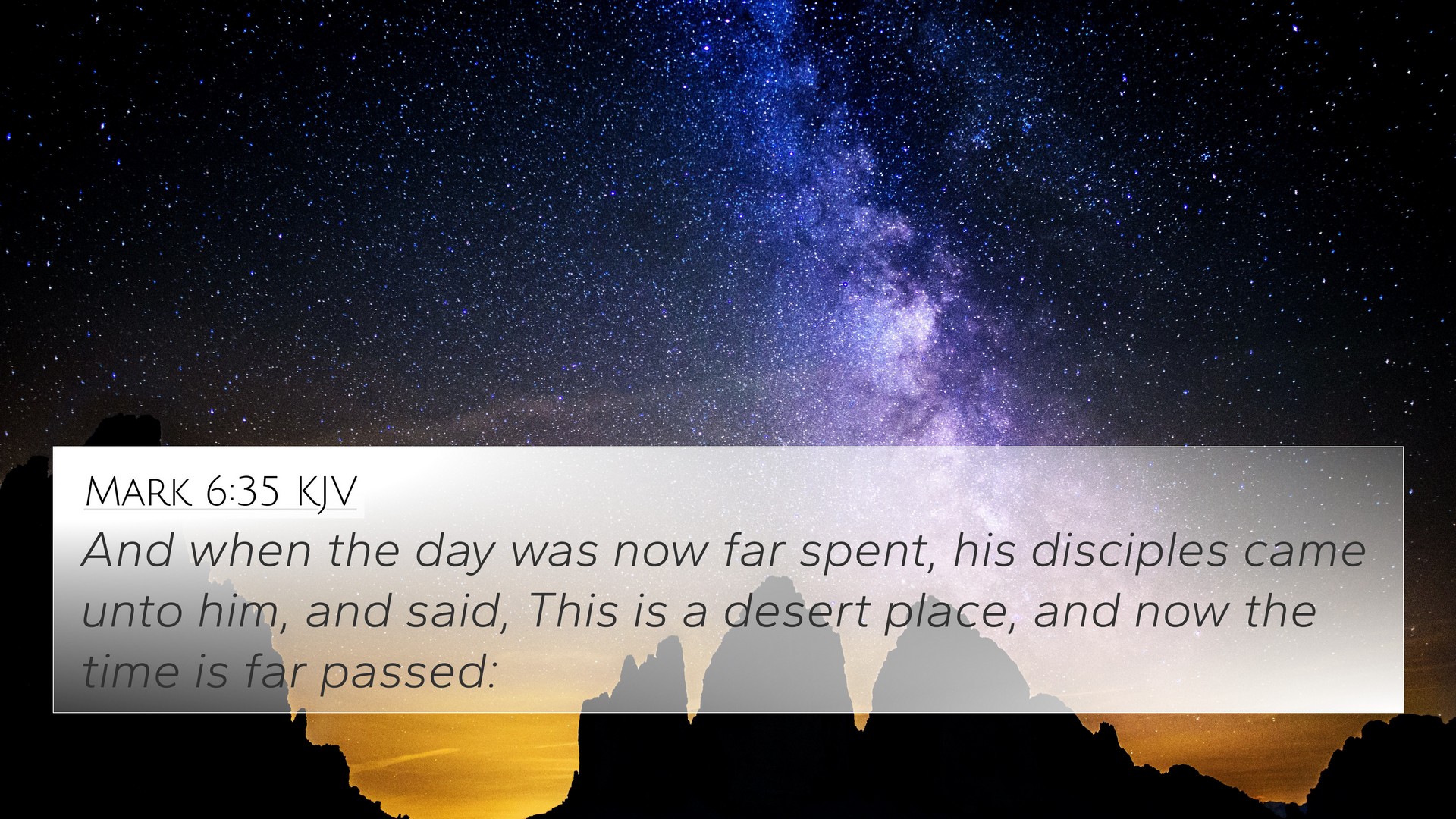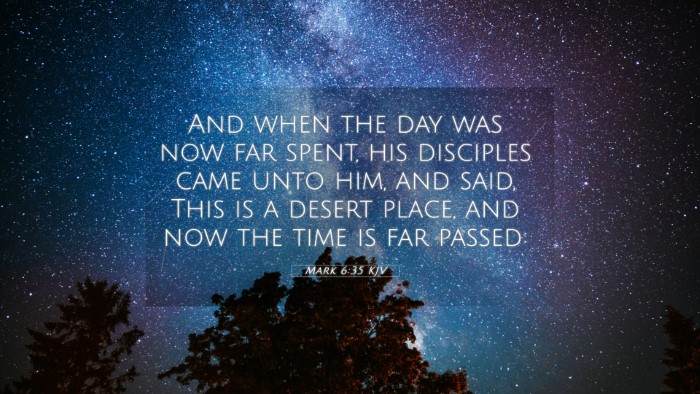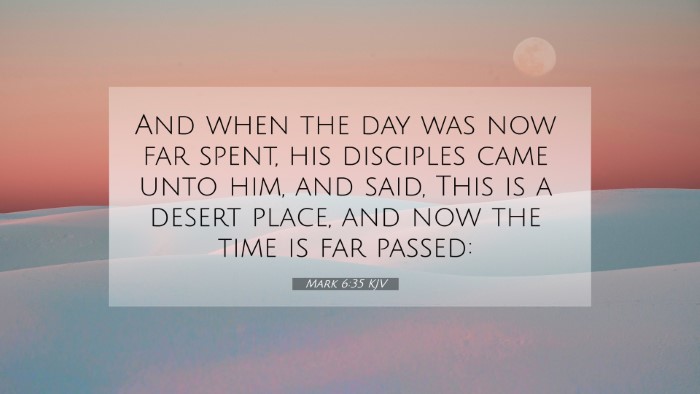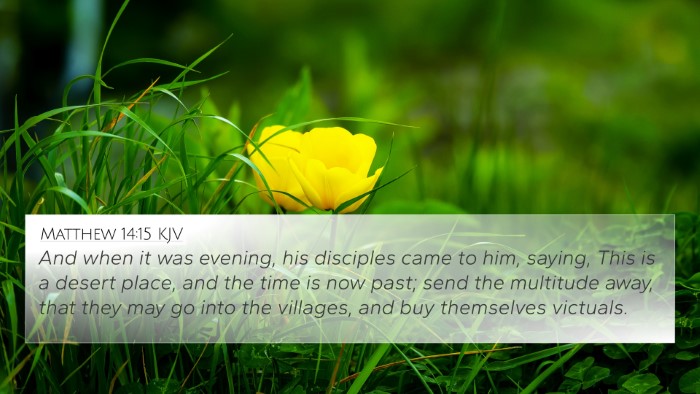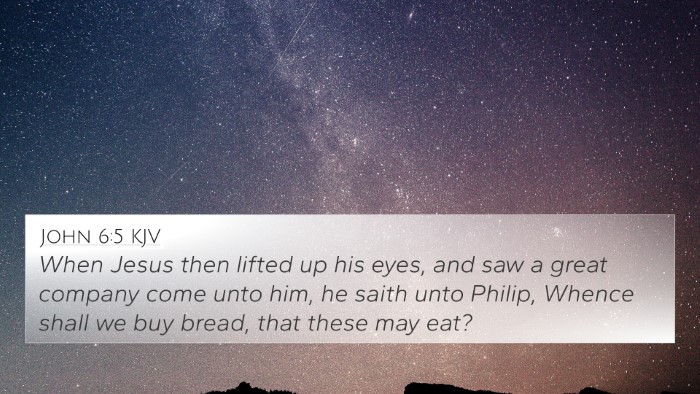Understanding Mark 6:35
Mark 6:35: "And when the day was now far spent, his disciples came unto him, and said, This is a desert place, and now the time is far passed."
Summary of Mark 6:35
This verse sets the stage for one of the most miraculous events recorded in the Gospels—the feeding of the 5,000. The disciples, observing the late hour and the barren surroundings, bring a practical concern to Jesus, indicating both their sense of urgency and the needs of the people.
Insights from Commentaries
Matthew Henry: Henry emphasizes the disciples' growing concern for the crowd's needs, noting that they are aware of the physical limitations surrounding them. They recognize that the day is waning, and the people must be cared for. This highlights human limitations and the need for divine intervention.
Albert Barnes: Barnes comments that the disciples’ observation of the “desert place” underscores their understanding of the natural limitations of the situation. He points out that this sets up the context for Jesus to demonstrate his ability to provide and care for his followers, a frequent theme in the Gospels.
Adam Clarke: Clarke reflects on the location and time, suggesting that the mention of the “desert” emphasizes the wilderness' barrenness and the potential helplessness of the crowd without food. This moment illustrates a critical transition where the disciples will witness Jesus’ miraculous provision.
Thematic Connections
This verse is a pivotal moment leading to themes of provision, divine mercy, and the community of believers. As we explore further, we can identify several connected scriptures that enhance our understanding:
- John 6:1-14: The feeding of the 5,000, providing the miracle that directly follows this setup.
- Matthew 14:15-21: Parallel account in another Gospel highlighting the same event.
- Luke 9:12-17: Again, the feeding of the multitude is recounted, showcasing the consistent theme across the Gospels.
- Exodus 16:4: God providing manna in the desert for the Israelites—showing God’s provision in times of need.
- Psalm 78:19-20: Reflects on God feeding his people in the wilderness, drawing a connection between Old Testament provision and New Testament miracles.
- Philippians 4:19: “And my God will supply every need of yours…”—a New Testament promise that relates to God’s provision theme.
- Matthew 6:31-33: Jesus instructing not to worry about physical needs but to seek the Kingdom of God—this teaches reliance on God for sustenance.
- Isaiah 25:6: Describing a feast of rich food prepared by the Lord, linking to the ultimate provision and mercy of God.
- John 10:14-15: Jesus as the Good Shepherd who cares intimately for His flock, mirroring the theme of care demonstrated in Mark 6:35.
- Revelation 7:16-17: A promise that God will provide sustenance in heaven, connecting the earthly need with eternal fulfillment.
Conclusion
The narrative in Mark 6:35 is a vital moment that not only highlights the disciples' concerns but also Jesus's capabilities as the provider. Each of the referenced scriptures offers a deeper understanding, inviting readers to engage in a greater exploration of the Bible’s interconnected themes. This creates a rich context for both study and application, encouraging believers to see the continuity of God's provision across the Biblical narrative.
Practical Applications
As you reflect on this verse and its connections, consider how it applies to your life:
- Cultivating Awareness: Recognize when you or others are in need and how to respond with faith.
- Building Community: Like the disciples, be proactive in caring for those around you, bringing their needs before the Lord.
- Trusting God’s Provision: In moments of uncertainty, rely on the promises of God and His faithfulness demonstrated through scripture.
- Engaging in Disciple-making: Involve others in the mission of meeting needs within your community, echoing the collective growth seen in the Gospels.
